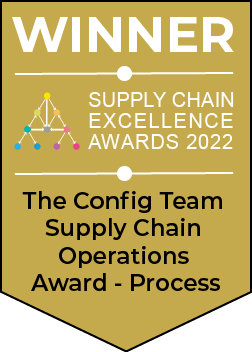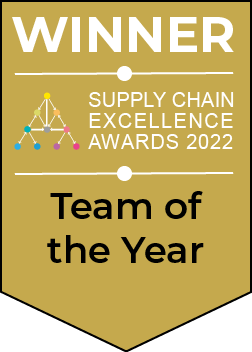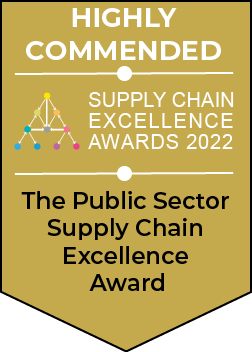NHS Vaccine Rollout
The way out of the COVID-19 pandemic is to vaccinate the nation. This task fell onto the shoulders of the NHS. Behind the success of the life-saving vaccine rollout lies a story of exceptional collaboration and commitment by people across many disciplines, who pulled together at a critical time to take on the challenge. From lab to vaccine centre, professionals and volunteers rallied to get millions of people vaccinated at great pace.
Challenge
From the outset, the Vaccine Cell, the emergency national vaccine rollout programme set up by DHSE and NHS England was faced with managing a huge logistical operation. Rolling out a vaccination programme to an entire nation is massively challenging, especially when racing against time to save lives.
Getting vaccines to those most at risk and then the wider population needed meticulous organisation. Every minute detail from production, purchase, storage, transportation, and equipment as well as finding physical locations and staff to man them, often supported by volunteers needed to be carefully planned with joined up thinking. Added to this was the challenge of utilising technology and data, to monitor and manage flows to prioritise the geographical distribution of often limited stock.
NHSE needed to find and engage people with the right experience, expertise and dedication to design, implement and optimise vital NHS vaccine distribution.
What we did
Planning, preparation and operational management were crucial and Practicus is proud to have played a small, but important role in supporting the NHS from the beginning of the programme with the delivery of key experts, at the heart of the vaccine logistics and operations. Our highly skilled and experienced Interim Consultants provided much needed supply chain experience, engagement and programme leadership. They brought external and non-NHS experience and drew upon knowledge gained from working internationally to deliver complex programmes. This was particularly evident in the delivery of key aspects of vaccine distribution to a diverse range of centres and the swift scaling up of the operation as more vaccines became available to the general public. The team were brought into the programme to implement the vaccine and non-vaccine supply chains and were instrumental in the operationalisation of the Vaccine Centres around the country. Working with the NHS, other contracted organisations and the MOD, they helped to ensure correct site placements for the rollout and to meet all their requirements most effectively, whilst bringing value for money to the public purse.
The number of vaccination centres including stadiums, community halls, and even places of worship commissioned numbered over 2,000 sites in July 2021. As many as 30,000 NHS workers and 100,000 volunteers stepped forward to vaccinate the population. The logistical challenges for the planners to ensure just the right number of vaccines are available should not be underestimated – and reduction or total elimination of wasted vaccines was made a priority. (Read more about the challenges here.)
Outcome
Strategically located vaccination was pivotal in promoting vaccine uptake. Once selected, each site was successfully transformed into an efficient centre and supplied with the right equipment and personnel for the duration of the operation. Each centre was consistently supplied and supported by the logistics operation to deliver a unified vaccine programme at scale and speed. This is one of the areas where the NHSE CV19 data store, maintained by the logistics team, made a real difference by keeping track of areas such as warehouse inventories and staff readiness.
The Practicus team created a delivery model the likes of which no one had ever achieved before, to scale the whole of England in a timeframe many believed impossible. Key outcomes included:
- The first 1,000 large vaccination sites and 350 Hospitals were ready for scaled vaccine administration in just 22 days, with an additional 100 plus large scale vaccinations centres in place over the following 24 days
- Centres received the correct vaccine quantity at the right time to minimise wastage
- Accurate records demonstrating total site numbers, by type, wave, date and status
- Training 450 NHS, DfE and UKHSA colleagues in operational elements, assurance, capacity and coverage modelling, demand strategy and site placement training
- Negotiating cost reductions and challenge cost drivers to gain circa £7.5M in savings across budget
- £367,000 saved through premise deep dives, rationalising sites based on efficient usage
- £1m saved through redeploying 5 trailers, 2 portakabins and numerous vans to other Trusts
While larger sites have been decommissioned, logistics management continues to cater for the many pop-ups and walk-in centres that are needed to bring the vaccine to where people congregate. This is one of the strategies for tackling vaccine hesitancy, and an approach to reach the younger age groups.
As COVID-19 is likely to need future vaccine management similar to the flu, the groundwork has been laid for future systems to manage vaccination levels, connecting with existing patient healthcare records but also connecting with vaccine production, transportation scheduling, local storage information etc. Technology is a critical vaccine programme enabler, but it takes skilled supply chain experience and project management to make sure that available resources are used and plans executed in the best way.
Awards
During 2022, the Team’s brilliance and efforts were recognised by winning a number of awards and accolades. In March Practicus entered the collaboration with NHSE into the HSJ Partnerhsip Awards and in November the team were part of the NHSE and Parterns entry in the Supply Chain Excellence Awards.
Supply Chain Awards 2022
`


HSJ Partnership Awards

You might also like:
NHS Vaccine Rollout Success – How Spirit, Speed and Skills Conquered Some Big Challenges
